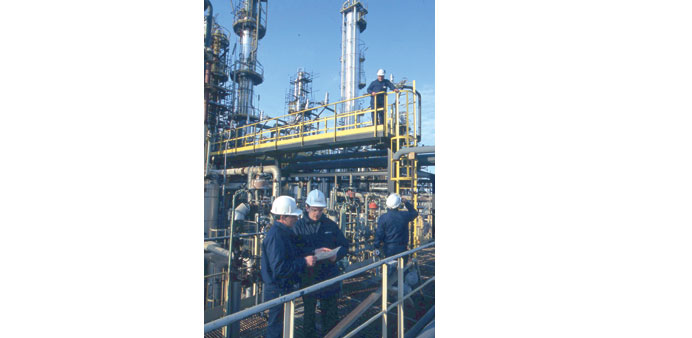Sanctions against Iranian oil, Iraqi flow outages and a change in Russian export routes have left Europe’s recession-hit Mediterranean refiners short of their preferred oil grades at a time when the rest of the world has plentiful supply.
Oil firms are betting shortages of previously abundant and cheap sour, heavy crude are here to stay, bad news for refiners who set up their plants for the grade in the days when light, sweet barrels were scarcer and more expensive.
The deficit may even worsen in the months to come as Russia sends more oil to Asia and Europe’s north while major trading houses have built a large position in the Mediterranean, allowing them to dictate prices.
That forces refiners such as Italy’s Eni, traditionally reliant on Russian Urals, Iraqi Kirkuk and Iranian crude grades, to look for alternative and expensive options putting them under further strain in a recession-hit region.
This week, Eni won Russian oil firm Surgut’s tender for 1.2mn tonnes of Urals crude loading from the Baltic ports of Primorsk and Ust-Luga in July-December.
Eni has never before committed to long-term oil deals in the Baltic and took oil from Europe’s north to its plants in the south only sporadically when market freight and pricing conditions favoured such operations on a one-off basis.
“The Mediterranean will be structurally short for a long time. Russia has built a big surplus of pipeline exports capacity to Asia and the Baltic. Now it has to fill it to pay back the initial investments. So things look bad for the Med,” said a source with Eni.
To outbid the rivals at the tender, including oil majors BP and Total, the Italian firm had to pay a premium of 60 cents per barrel to a pricing formula that Surgut uses to award tenders.
“This is a crazy high price,” a trading source at a competitor said. “But I guess it could make sense if you want to have guaranteed volumes for half a year without depending on market shenanigans.”
Already facing flagging demand in Europe, the last thing refiners want is to pay up for crude as it would further reduce their refining margins and hence profits.
However, that looks almost inevitable.
And refiners set up for heavy crudes have been caught out dramatically by the US shale oil revolution as North America slashed imports of light Nigerian, Libyan and Algerian oil, making them available for Europe. That depressed light rival grades from countries such as Azerbaijan or Kazakhstan.
By contrast, heavy grades have become a scarce commodity after Europe slapped sanctions on Iran’s mostly heavy oil as part of its stand-off with Tehran over its nuclear programme.
“Iraqi supplies have also been so awfully unreliable that many people have written them off as a serious alternative,” a senior trader from a major said.
The Iraqi-Turkish Kirkuk pipeline has been disrupted regularly this year and volumes have been scarce as semi-autonomous Kurdistan has yet to resume supplies of other grades amid tensions with Baghdad.
As a result, supplies of sour grades such as Urals, Kirkuk and Iranian oil to the Mediterranean have almost halved over the past 5 years to 1mn barrels per day.
That resulted in Urals now regularly trading at a premium to benchmark Dated Brent, says David Wech from JBC Energy: “Urals is benefiting from a plethora of supporting factors”.
Urals never traded at a premium to dated Brent between 2002 and 2009. Since the end of 2011, when talk of tighter EU sanctions against Iran first emerged, Urals shot above Brent at least four times, including this week.
Contributing to the strength of the Russian grade has been a large position that trading houses obtained for the remaining Urals cargoes in the Mediterranean at tenders of state oil major Rosneft.
Meanwhile, Russia kept increasing exports to Asia and built a large new port in the Baltic, Ust-Luga, further diverting supplies away from the Mediterranean.
“The pressure in the Mediterranean could ease a bit when Kazakhstan ramps up output later this decade. But that will be light, sweet oil too,” a trader with a major said.

